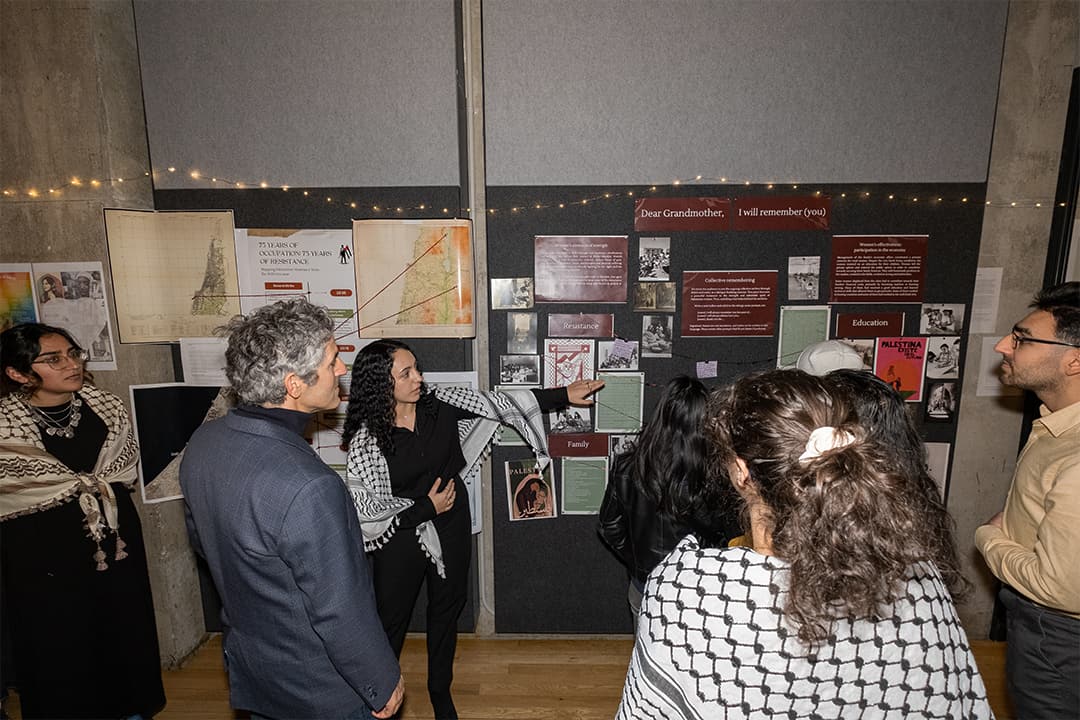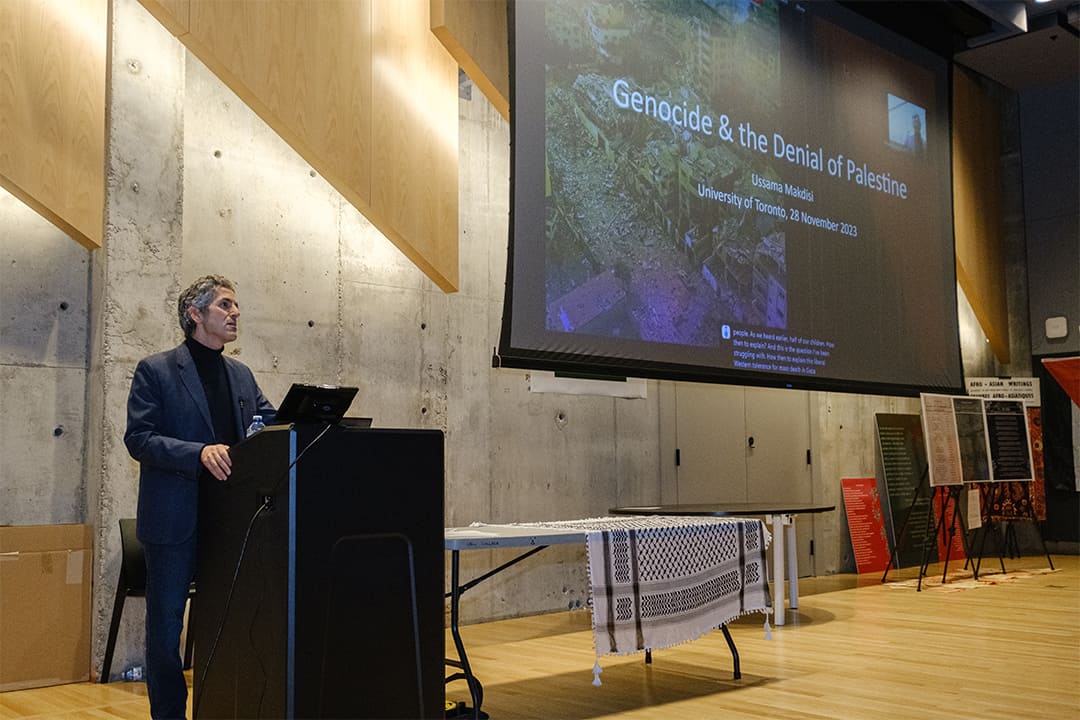On November 28, the Critical Studies in Equity and Justice program held its second annual Palestine Studies Salon. The event was in collaboration with Hearing Palestine, a U of T-based organization that describes its mission as to “provide an intellectual hub for the study of Palestine.”
The William Doo Auditorium, where the event was hosted, was filled with attendees of all ages, many of whom wore keffiyehs — a traditional Palestinian scarf and cultural symbol. In addition to hosting a keynote lecture by University of California Berkeley Professor Ussama Makdisi, the event was also an opportunity for students from the U of T course CSE445 — Rethinking Palestine: Colonialism, Revolution and Transnational Solidarity to showcase projects from the class. On the auditorium’s walls were posters displaying research projects featuring maps of Palestine and art about Palestinian culture and resistance.
The event began with an acknowledgement of solidarity between the Palestinian cause and the cause of Indigenous peoples in North America. A land acknowledgement and solidarity statement by Assistant Professor of Indigenous Politics Uahikea Maile was followed by a rousing jingle dress dance performance accompanied by Ojibway singer and drummer Isaiah Cada.
The event was MC’d by two Palestinian students in the CSE445 class, Sara Qadoumi and Jenna Barhoush. Qadoumi, a Canadian-born student whose father is Palestinian, presented a short film she created as her final project that traced her family’s experiences with displacement and diaspora across several generations. “[In this class,] I’ve learned more about my family, my heritage, my history,” she said in an interview with The Varsity.
Jude Arafat, a student in the class last year, also presented a short film. It featured a conversation between her and her grandmother, who currently lives in Gaza.
Although the event was a celebration of Palestine — featuring a spread of Middle Eastern food for attendees and students presenting their hard work from the semester — there was also a sense of urgency and gravity about the ideas being shared. Assistant Professor Chandni Desai, who taught CSE445, spoke to The Varsity about teaching a class about such a pressing and prominent geopolitical issue.
“It’s been breathtaking, actually,” she said. “In an environment where there’s a lot of misconception… to be able to teach a course that is grounded in Palestinian history… has been really, really important and refreshing.”
Makdisi, they keynote speaker, gave a lecture titled “Genocide and the Denial of Palestine.” His lecture offered a detailed history of roughly the last century, giving background on the genesis of ‘the question of Palestine.’ He particularly emphasized how European states and policymakers set the stage for the current violence in Palestine during the fateful years following World War II.
Contextualizing the current violence in Israel and Gaza has been an important aim of the CSE445 course. As Desai explained, the class allowed for “[the] contextualization of 75 years of what has been happening, [and the idea] that things don’t just happen in a vacuum.”
Notably, the course did not just include Palestinian students but also students from diverse backgrounds donning keffiyehs and presenting their research projects.
“Growing up as Palestinian, you’re always aware of just the general opposition towards us, and how a lot of our history is misconstrued,” said Barhoush. “So I feel like I came into the university ready to defend my cause.”
However, she explained that by coming to U of T, she realized that she wasn’t really alone. “There are a lot of people that know a lot about the cause that aren’t Palestinian, which was really good.”
Editor’s note (December 3): This article was updated to remove a mention and photos of participants because The Varsity was not able to get in contact with them to verify their names and information.




No comments to display.